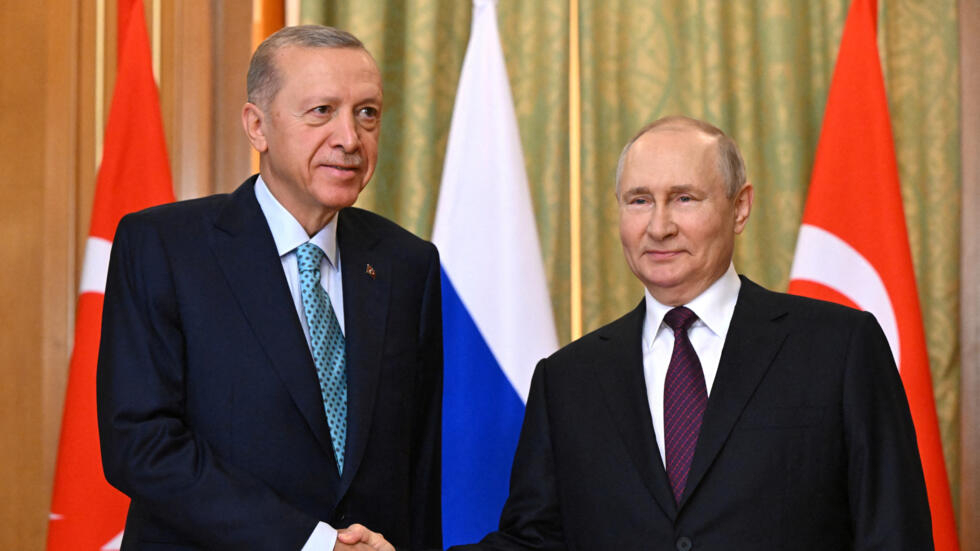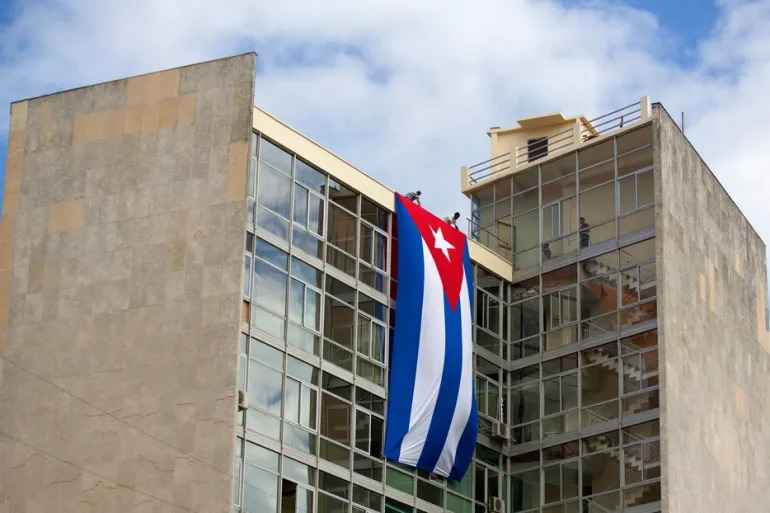Russian President Vladimir Putin has once again made it clear that Russia will not renew the United Nations-brokered grain deal, a linchpin for global food supplies, until Western nations meet Moscow’s demands regarding its agricultural exports. This announcement dashes hopes that Turkish President Recep Tayyip Erdogan, who met with Putin in the Black Sea city of Sochi to discuss the agreement’s revival, would succeed in bridging the gap between Russia and the West on this crucial matter.
Putin-Erdogan Meeting Fails to Revive Crucial UN-Brokered Grain Deal
The tense situation unfolded after the high-stakes meeting between Putin and Erdogan, where the two leaders attempted to breathe life back into the UN-brokered grain agreement. The deal, essential for ensuring food supplies across Africa, the Middle East, and Asia, faced its demise when Russia refused to extend it in July. Moscow cited a parallel agreement that had not been honored, leading to restrictions on shipping and insurance that hampered Russian agricultural trade, despite record amounts of wheat being shipped over the past year.
Putin reiterated these grievances, emphasizing that the Black Sea corridors should not be exploited for military purposes. However, he left the door open for a potential return to the deal “within days” if the Western nations honored their commitments.
Erdogan, who has taken on the role of mediator between Ukraine and Russia, expressed optimism about a potential breakthrough. Turkey and the UN, the original deal’s brokers, have proposed a new package of proposals aimed at resolving the impasse. This meeting marked the first interaction between the two leaders since Erdogan’s re-election for a third term as president in May.
The United States and the European Union have dismissed Moscow’s complaints, asserting that their sanctions do not target Russian grain and fertilizers. However, should the deal remain in limbo, experts warn of “drastic impacts” on several African countries heavily reliant on Ukrainian and Russian grain.
Russia’s Offer of Free Grain to African Nations Amidst Stalemate
In an effort to mitigate potential food shortages in the wake of the stalled grain deal, Putin announced that Russia is on the cusp of supplying free grain to six African countries. He revealed, “We are close to completing agreements with six African states, where we intend to supply foodstuffs for free and even carry out delivery and logistics for free,” with deliveries set to commence within the coming weeks. Putin further alleged that a substantial portion of the grain exported through the Black Sea deal ended up in Western countries rather than reaching needy nations.
International Outcry Over Russia’s Actions and Impacts on Global Food Security
The impasse has sent shockwaves through the international community, especially in Turkey, where hopes were high that Erdogan might persuade Putin to return to the Black Sea grain deal. Officials in Turkey have been striving to convince Western nations to allow Russia limited access to the international payment system and have insurance companies provide coverage to Russian ships carrying grain and fertilizer, potentially breaching Western-imposed sanctions.
However, the situation remains complex due to Turkey’s dual role as a key trading partner with Russia and a supporter of Ukraine, which includes supplying arms and endorsing Ukraine’s bid to join NATO.
Meanwhile, in Ukraine, there is a sense of cynicism regarding the outcome of the Sochi meeting. Russia’s invasion of Ukraine, which turned the Black Sea into a war zone, has led to attacks on Ukrainian grain ports and storage infrastructure, resulting in the destruction of tens of thousands of tonnes of grain. Ukraine has established its own export corridor from the port of Odesa, but Russia has threatened to treat all ships calling at Ukrainian ports as potential military targets.
The European Union has strongly condemned Russia’s recent attacks on Ukrainian grain infrastructure, asserting that such actions are driving up global food prices and jeopardizing vulnerable populations worldwide.
German Foreign Minister Annalena Baerbock criticized Putin’s decision to block the Black Sea grain deal as “cynical,” emphasizing the importance of Erdogan’s efforts to get the agreement back on track. Ships loaded with Ukrainian grain have remained stuck in Black Sea ports since July, exacerbating concerns about global food security.
As the diplomatic tug-of-war continues, the world watches anxiously, hoping for a resolution that will safeguard food supplies and alleviate the mounting global hunger crisis.
















